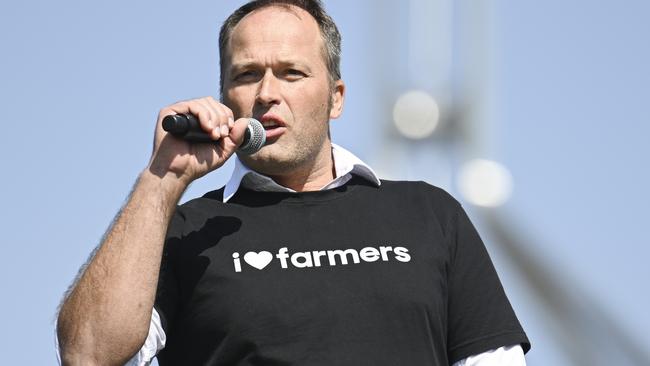Thousands of farms ‘threatened’ by flawed super tax

Treasurer Jim Chalmers mischaracterises this as “a very modest change”, but it would in fact radically reshape our tax system and potentially devastate thousands of family farms.
The evidence against this proposal is irrefutable. When superannuation architect Paul Keating himself raises concerns about taxing unrealised gains and the absence of threshold indexation, it signals a serious policy flaw. This isn’t partisan politics – it’s economic common sense backed by compelling data.
University of Adelaide research reveals the stark reality: almost 50,000 SMSF members would face immediate impact, with average additional tax liabilities exceeding $80,000. More concerning is that 13.5 per cent of affected members would experience significant liquidity stress and be unable to meet tax obligations without selling assets.
For agriculture, these aren’t abstract numbers but existential threats. Thousands of Australian farms held in self-managed superannuation funds and leased to the next generation provide retirement income while enabling succession. The taxation of unrealised gains would force many farmers to sell land assets simply to pay their tax bill. These aren’t wealthy individuals hoarding hundreds of millions – they’re hardworking Australians who’ve built farms to pass on to their children and grandchildren.
In fact, this model of succession planning is common practice. Thousands of family farms have placed their land into super to lease back to the next generation. It’s how farmers retire while giving the next generation a shot at running the business. This tax threatens to unravel that model.
Land values may have risen, but they’re just numbers on paper unless a property is sold. Farms are long-term, often multigenerational, operations. A rise in paper value doesn’t mean more money in the bank. It certainly doesn’t mean there’s cash lying around to hand over to the tax office.
This bill doesn’t discriminate. If you’re a farmer in the depths of drought, rebuilding after a flood or fire, or market prices bottom out, it could well mean a year of negative income. But if your assets are held in super and land values rise, you could face a tax bill.
If the bill goes ahead, 3500 farming families will be hit immediately. Another 14,000 are in the firing line if land values creep above the threshold. And let’s be clear – every one of Australia’s 80,000 farmers could be next if this becomes a broader tax on unrealised gains. That should alarm anyone who believes in stable, principled tax policy.
It could also force a terrible choice: sell the farm to pay the tax, or raise lease rates so high your kids can’t afford to run the business. That’s not just a tax issue, it’s the slow erosion of family business succession and rural community viability.
The strength of Australia’s super system lies in its stability – people trust it because it’s dependable. If super becomes volatile or unpredictable, that trust disappears. These changes undermine the very confidence the system relies on.
This policy creates a troubling precedent by overturning almost 40 years of tax practice separating income and capital gains tax. When an extraordinarily broad coalition including farmers, small business organisations, and financial experts unanimously warn against a proposal, prudent governance demands reconsideration.
The Treasurer’s suggestion that someone else will eventually index the threshold offers cold comfort to the 3500 farmers facing immediate hardship. It’s also possible a future Treasurer would use this precedent to expand taxation of unrealised capital gains.
When the Greens’ desire to lower the threshold to $2 million represents the policy’s only enthusiastic support, then you know the idea is crying out for deeper scrutiny.
The National Farmers’ Federation isn’t opposing reasonable reform of superannuation concessions. But taxing unrealised gains represents a dangerous departure from established tax principles with far-reaching consequences beyond the targeted “half a per cent.”
The Treasurer has built a reputation as a credible economic manager. Now is the moment to demonstrate true economic leadership by revisiting this flawed policy and working with stakeholders to develop a more measured approach that achieves revenue goals without forcing family farms to the auction block.
David Jochinke is president of the National Farmers’ Federation.



The Albanese government’s convincing election win grants it a mandate, but it equally gives it the capital to fix broken policies in light of overwhelming stakeholder feedback. It should spend this capital on its flawed super tax proposal.